Dr Yunus at UNGA 2024: A pivotal moment for Bangladesh's trade diplomacy
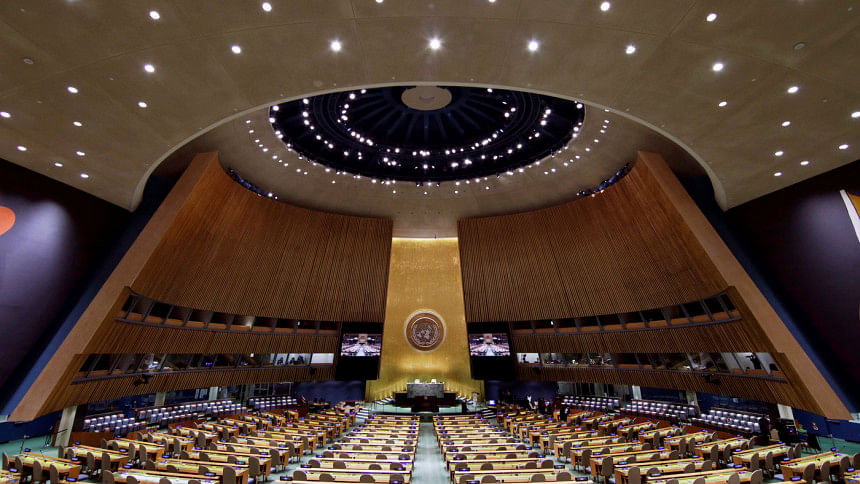
For Dr Muhammad Yunus, the United Nations is more than just a global platform—it is a "second home." Over the decades, he has been a frequent presence at the UN, advocating for social business, poverty eradication and inclusive development. The UN's endorsement of his work, including his role as a key voice in the fight against global inequality, solidifies his profound connection with this multilateral body. As head of Bangladesh's interim government, his return to the UN General Assembly (UNGA) stage feels like a natural continuation of his lifelong mission, bringing his vision for a more equitable world to the forefront of global diplomacy.
In recent years, Bangladesh's diplomatic efforts have often been characterised by symbolic gestures, such as "hilsa diplomacy," where the export of the prized fish to neighboring countries like India served as a goodwill token. Similarly, "mango diplomacy," which involved gifting the country's famous sweet mangoes to foreign dignitaries, aimed to foster friendly ties. While these gestures contribute to soft power, Bangladesh now needs to pivot toward more pragmatic and results-driven trade diplomacy.
This UNGA provides a well-timed platform for Bangladesh to rectify the recent borderline diplomatic demarche on alleged "megaphone diplomacy," where public pronouncements have been seen as taking precedence over bilateral diplomatic negotiations. Additionally, strategic engagement on its sidelines offers an opportunity for spot-on bilateral or multilateral discussions as to the emerging "exile diplomacy" or "asylum diplomacy." The talks could highlight the involvement of neighbouring power in facilitating exiled leaders to partake in a form of pre-empted "reverse megaphone diplomacy."
Similarly, Bangladesh can remain open to "track II diplomacy" to address regional conflicts or disputes. It could facilitate more effective negotiations, which are also beneficial to mutual trade, by involving academics, think tanks, and NGOs in discussions with neighbouring countries like India and Myanmar on sensitive topics. Additionally, through "humanitarian diplomacy," particularly by providing critical support during crises like the Rohingya situation—where it has already played a prominent role by hosting refugees and seeking international assistance—Bangladesh strengthens its position on the global stage.
Bangladesh can further promote the sustainable use of ocean resources through "blue economy diplomacy" by building partnerships focused on maritime security, sustainable fisheries, and ocean resource management, thus establishing itself as a leader in harnessing the Bay of Bengal's potential while preserving ecological balance. Additionally, through "green trade diplomacy," Bangladesh should strive to lead in sustainable production by implementing green manufacturing practices, especially in the RMG sector, and strengthening collaborations with EU countries such as Sweden, Denmark, and Germany, pioneering green technology to enhance its green production capabilities.
Bangladesh's potential to strengthen its international economic position is immense given the global economic shifts and opportunities for near-shoring or friend-shoring and diversified trade relations, albeit its economic landscape is undergoing significant transformation. Just as African nations effectively utilised UN platforms and strategic partnerships to secure and advance the African Continental Free Trade Area, Bangladesh now has a valuable opportunity to similarly leverage the UNGA to invigorate South Asian Association for Regional Cooperation, address the longstanding challenges and set the stage for enhanced regional cooperation and economic growth.
The recent postponement of EU-Bangladesh partnership agreement negotiations also highlights the need for renewed engagement to resume these stalled discussions. It offers a strategic chance to address outstanding or unresolved issues, such as strengthening current trade relations and negotiating future post-LDC Generalised Scheme of Preferences Plus (GSP+). This is crucial for preserving the competitiveness of Bangladeshi garment products, particularly in light of its impending safeguard measures. Additionally, it offers a scope to help diversify our export basket beyond the RMG sector, which has driven the country's economic growth but also poses risks due to over-reliance.
Through sideline meetings, Bangladesh can actively advocate for potential trade deals, such as Free Trade Agreements and Preferential Trade Agreements, to stimulate growth in key sectors like apparel, pharmaceuticals, leather goods, and information technology. Strengthening connections with emerging markets in Africa, Latin America, Southeast Asia, and the Middle East can further enhance these efforts. For instance, the Comprehensive Economic Partnership Agreement between India and the UAE illustrates how successful collaborations can flourish through diverse dialogue platforms.
Similarly, France has established strong trade connections with African nations through initiatives like the Francophonie Summit, while Spain leverages its tourism sector to strengthen trade relations through platforms like FITUR (International Tourism Fair). India's Act East Policy also exemplifies effective enhancement of trade relations with Southeast Asian countries via various bilateral agreements. To further its digital trade capabilities, Bangladesh should pursue e-commerce agreements with leading ASEAN and Nordic countries, to improve its digital infrastructure, strengthen fintech initiatives, and implement robust cybersecurity measures, which would attract foreign investment and boost digital exports.
The sidelines of UNGA 2024 offer a crucial opportunity for Bangladesh to enhance its trade diplomacy and safeguard its economic future. By focusing on key sectors, Bangladesh can effectively position itself for a successful transition from LDC status.
Dr Iftekhar Ul Karim is adjunct assistant professor at ZNRF University of Management Sciences. He can be reached at [email protected].
Views expressed in this article are the author's own.
Follow The Daily Star Opinion on Facebook for the latest opinions, commentaries and analyses by experts and professionals. To contribute your article or letter to The Daily Star Opinion, see our guidelines for submission.

 For all latest news, follow The Daily Star's Google News channel.
For all latest news, follow The Daily Star's Google News channel. 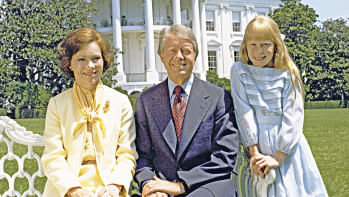

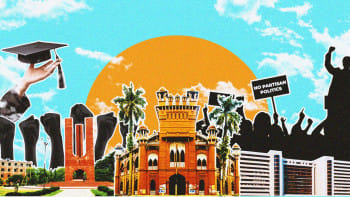



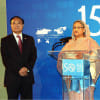



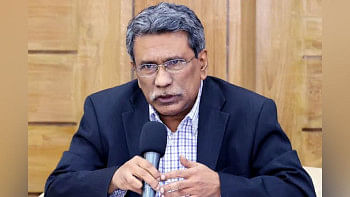
Comments